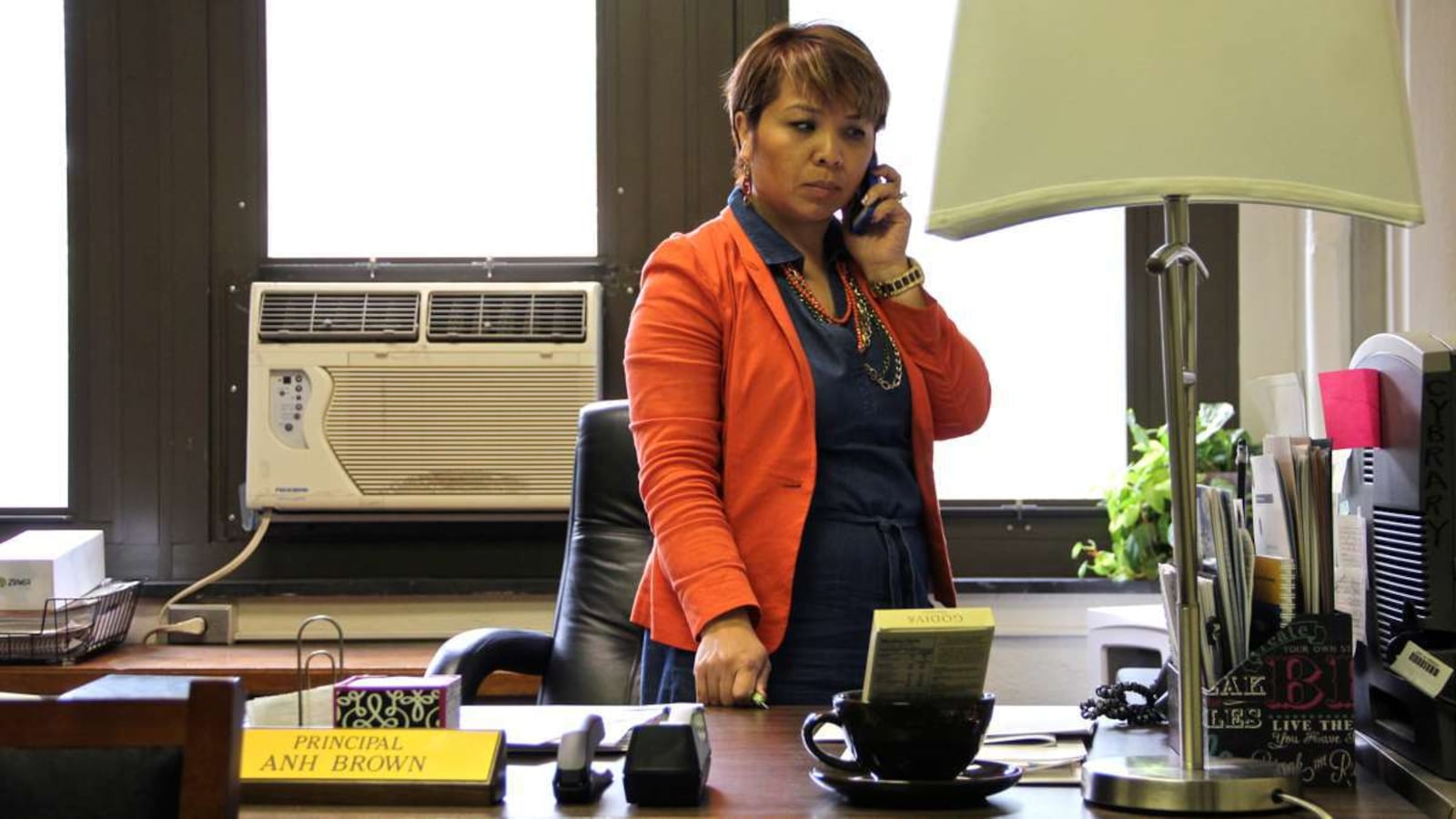This article was originally published in The Notebook. In August 2020, The Notebook became Chalkbeat Philadelphia.
Here we go again.
The Philadelphia School District opens its doors today, and, for the second year in a row, district leaders admit that resource levels are nowhere near sufficient. Children, they say, will not get the thorough and efficient education they’re promised by the Pennsylvania Constitution.
Schools this year will, in fact, have less.
Students will again find overcrowded classrooms and a shortage of guidance counselors and nurses.
Teachers will again be expected to pay for supplies out of pocket and achieve student gains, despite minimal supports.
Principals will again find little discretionary funding in their budgets and will now make due with fewer school police officers, reduced building maintenance, and cuts to special education.
When the district adopted its "doomsday budget" last summer, there was mass protesting in the streets. The teachers’ union shut down North Broad Street. Students banded together to demand better treatment.
Some additional funding trickled in, but overall resource levels remained dismal.
This year, as the District’s expenses grew (charter payments, pension costs, etc.) and last year’s one-time funding fixes disappeared, Superintendent William Hite warned of an "empty-shell" scenario where class sizes districtwide would balloon to untenable levels.
In the face of this possibility, advocates directed their attention to the passage of the Philadelphia cigarette tax, which is expected to generate tens of millions for schools annually.
The legislature failed to pass it this summer, but lawmakers say they’ll do so by mid-September.
Instead of truncating the school year – which Hite claimed for a time was a legitimate possibility – the District has chosen to take the politicians at their word.
But if cigarette tax money doesn’t start flowing by October, more layoffs are probably on the horizon.
In the meantime, the District has again called for the Philadelphia Federation of Teachers to agree to a new contract that includes health-care concessions and work-rule changes. The PFT contract expired at the end of August 2013.
Making it work at Nebinger
Despite the funding crisis, some schools have succeeded more than others in finding ways to shield their students from the brunt of the cuts.
"My teachers won’t allow the students here to feel that we’re in a crisis," said Nebinger Elementary principal Ahn Brown. Students know because they "hear it on the news," she said, "but if you step into Nebinger, you would never know."


